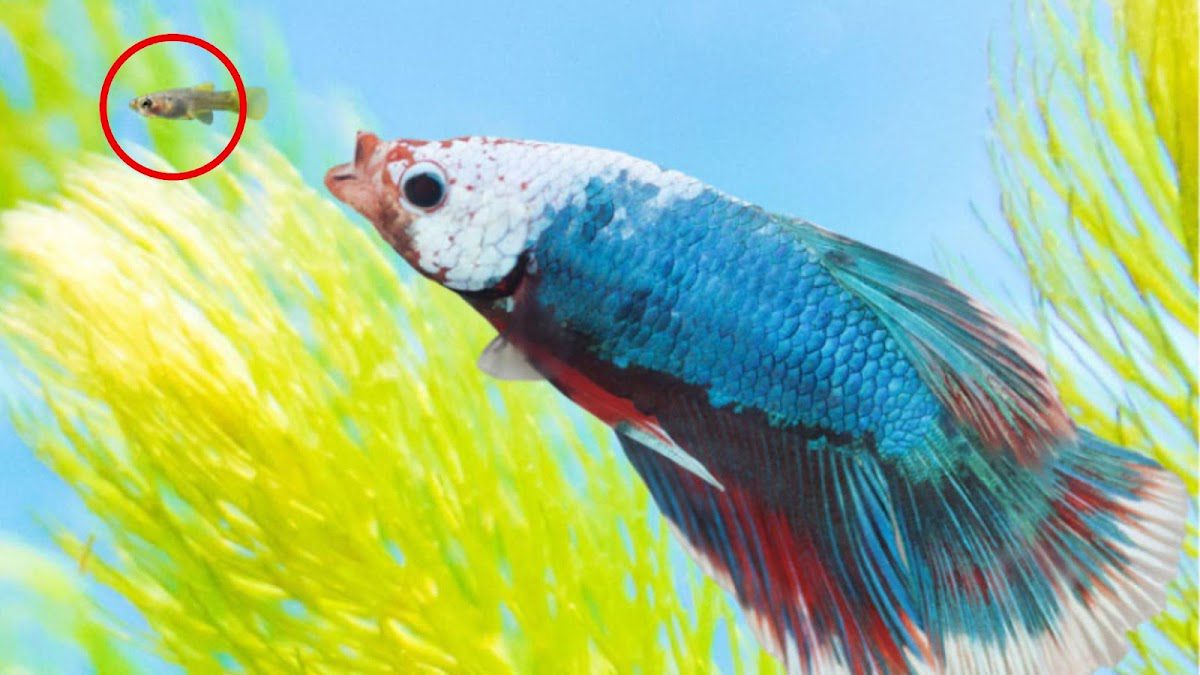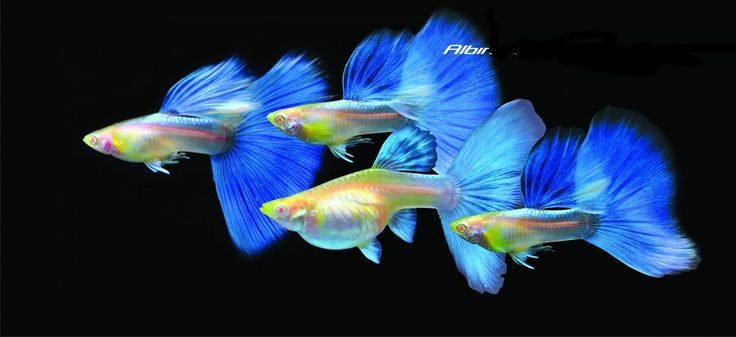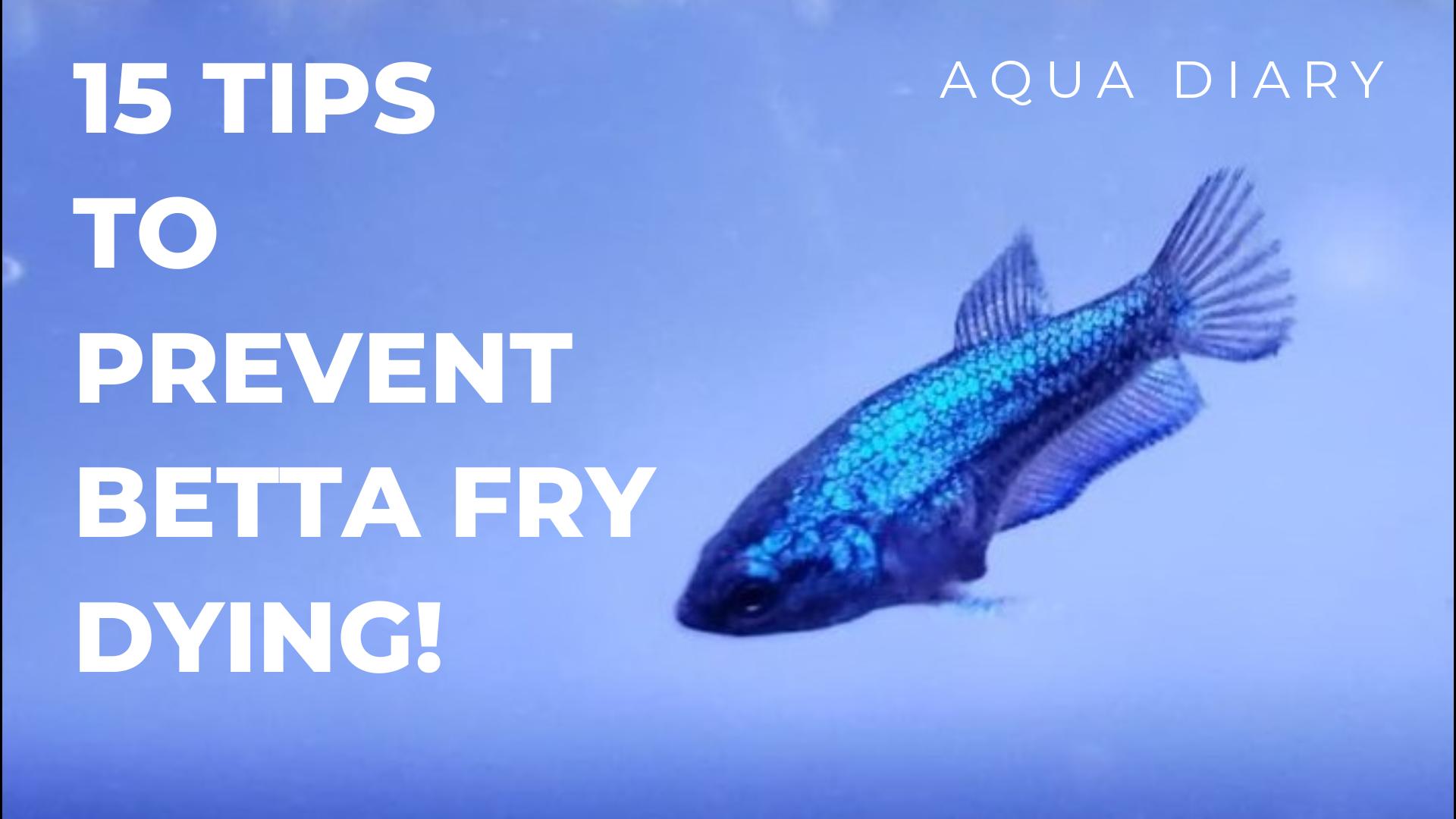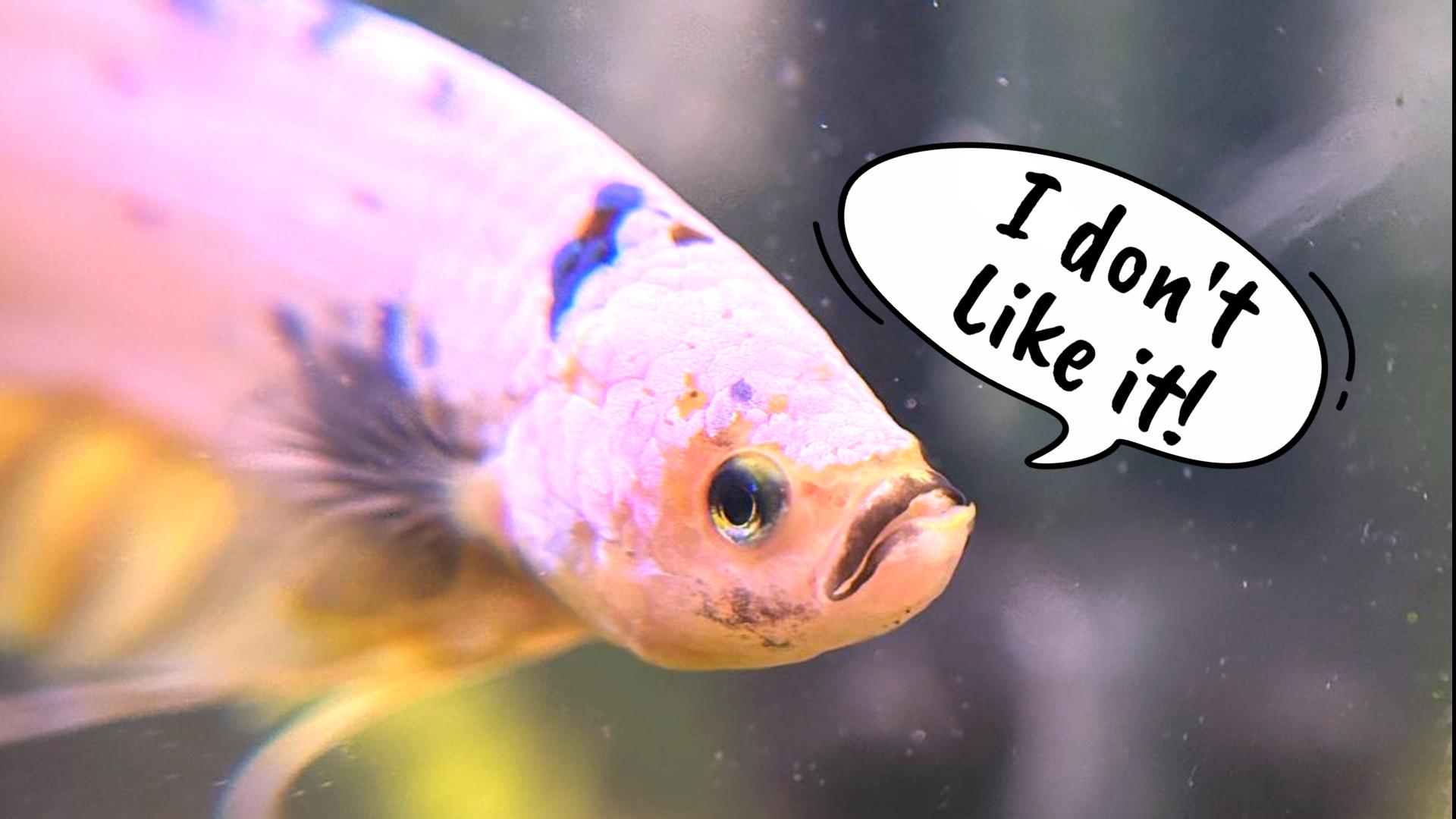Often, betta fish breeding fails because betta parents eat their fry or eggs. In this blog, we are about to talk about different scenarios when betta fish eat their babies and how to prevent them. Let’s get started.
How does Betta fish breeding work?
Betta fish build bubble nests to get them prepared for breeding. The male then tries to entice a pregnant female to come and visit. Once she arrives, the male wraps around the female, triggering her to release eggs and the male to release milt around eggs. Male bettas watch over the eggs for days before they hatch. And even after they hatch, the father defends them aggressively until they are ready to leave the nest. If they become stressed or if there are any other distractions, they will either fail to spawn or eat the eggs which results in betta breeding failure. If you are new to betta breeding, check out the betta breeding blog on the channel. This blog covers only the scenarios in which betta fish eat their eggs and fry and how to prevent it.

Do Male Bettas Eat Their Fry? – Betta fish eat their eggs!
Indeed, male betta fish can consume their own fry, a behavior observed in various fish species, including Betta fish. Males exhibit a protective instinct during breeding, creating bubble nests and defending them vigorously. They collect eggs and return fallen fry to the nest. New breeders may misunderstand this as aggression, but it’s integral to successful breeding.
Male bettas also eat unfertilized eggs to maintain water quality. Distinguishing between natural behavior and true consumption is crucial.
As fry starts swimming, males might see them as threats or competition. To prevent this, separate the male a few days after hatching, providing suitable conditions and regular feeding. Betta fish excel in parental care compared to many other species.
This ensures fry survival and minimizes risk, enhancing successful breeding.
What is the importance of betta bubble nests in breeding?
Betta bubble nests play a crucial role in the breeding process. Male bettas are responsible for building the bubble nest, which is made up of bubbles created by the male blowing air from his mouth. The bubbles then float to the surface of the water and form a nest-like structure. Once the nest is built, the male will lure the female under the nest to begin the breeding process. After the eggs are laid and fertilized, the male will pick them up and place them in the nest, where they will remain until they hatch. The male will continue to tend to the nest and fry, protecting them from threats and ensuring that the water in the nest stays clean and oxygenated. Bubble nests provide enough oxygen for betta fry and protect them from other environmental factors. They provide a safe and stable environment for fertilized eggs and fry.
Do Female Bettas Eat Their Eggs? – Betta fish eat their eggs!
The story is entirely different when it comes to female betta fish eating their eggs. A female betta fish may also eat released eggs during the spawning process, and this is more common than males eating eggs. You should remove the female from the tank as soon as all eggs are laid. You should place her in a separate tank so that she does not consume eggs or fry.
Why do your Betta eggs sit at the bottom of the tank?
Eggs on the tank bottom can result from various situations. Firstly, in the absence of males, females tend to skip bubble nests and deposit their eggs at the tank’s base. Regardless of the female’s effort in nest-building, without the male’s contribution, the eggs remain unfertilized. Secondly, strong currents or tank movements might dislodge eggs from bubbles. Typically, males recover and return these eggs to the nest, so no need for alarm. Lastly, if the male is stressed or fails to create a suitable bubble nest for egg protection, they might settle at the tank bottom. Understanding these factors is vital for addressing or preventing such issues in your breeding tank.
Is it true that Big Brothers eat the smaller fry? – Betta fish eat their eggs!
Baby bettas grow at different rates, and the larger ones have a tendency to dominate and sometimes eat smaller ones due to the aggressive nature of Betta splendens. The bigger fry will also eat more food than the smaller fry, resulting in the larger ones growing faster. Meanwhile, the smaller ones struggle to get enough food, impacting their growth negatively. After a few weeks, experienced breeders will separate all baby bettas by size to ensure their safety. This prevents larger ones from harming smaller ones, allowing each betta to grow at their own pace.
Why do some betta fish eat their babies?
Betta fish may consume their offspring in various situations, whether in the egg or fry stage. Male bettas can struggle with parenting if they’ve only lived in small tanks or are first-time fathers due to their natural aggression. Creating a secure breeding environment and maintaining the aquarium properly is vital for their well-being and preventing behaviors like consuming their fry.


Female bettas may eat their own eggs if left too long. To avoid this, promptly remove the female once all eggs are laid. Sometimes, the male may attack the female, signaling the need for separation, ensuring egg safety and successful hatching.
Mouthbreeder bettas hold eggs in their mouths until hatching, but accidental fry consumption can occur. Stress or poor fry development, due to factors like water quality or genetics, can contribute to this. Males may also eat fry if overwhelmed. Close monitoring and care minimize cannibalism risk, allowing mouthbreeder bettas to raise healthy fry.
Are community tanks suitable for betta fish breeding? – Betta fish eat their eggs!
If you’re wondering whether bettas can successfully breed in a tank with other fish, unfortunately, the answer is no. The male betta is usually responsible for caring for the eggs and fry, but can become overwhelmed and stressed if he cannot protect them from other fish in the community tank. In such cases, he may end up eating the eggs or fry rather than risk them being killed by other fish.
To ensure the best breeding conditions for bettas, it’s recommended to use a shallow, low-flow tank with proper water conditions. Bettas don’t like strong light or water flow, and they prefer to be alone, so a five or ten-gallon tank with no other fish is ideal. Additionally, keeping the water level to only four to six inches can also help minimize stress and increase the chances of successful breeding.
Do betta eat guppy fish fry?
If you’re keeping bettas in a community tank with other fish, such as guppies, it’s possible that the bettas may eat the guppy fry when the female guppy delivers them. It’s worth noting that if your betta has a history of eating guppy fry, I would not recommend using it for betta breeding, as there is a chance it may also eat the betta fry once it hatches.
Similarly, if you’re breeding bettas and keeping the fry in the same tank as the male betta for a long time, there is a risk that the adults may eat the fry. To avoid this, it’s best to separate the fry from the adult bettas and keep them in a separate tank. By doing so, you can help ensure that the fry has the best possible chance of survival and growth without being threatened by the adults.
Have we missed any other scenarios where adults can eat betta fry? What issues have you faced during the breeding process? Please let us know what you think in the comments section below. See you on the next topic.





